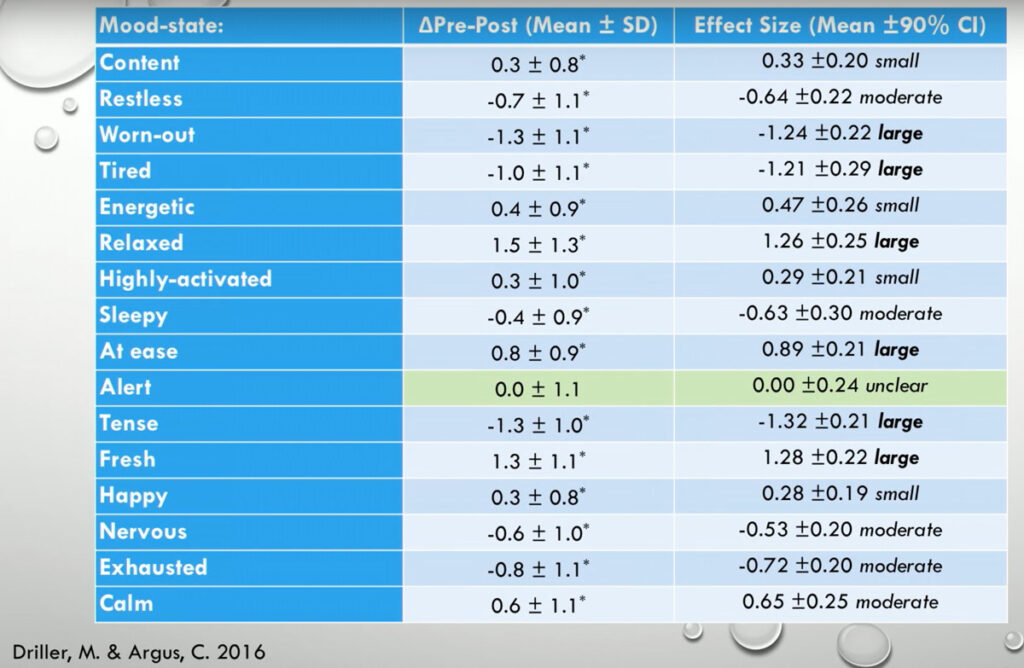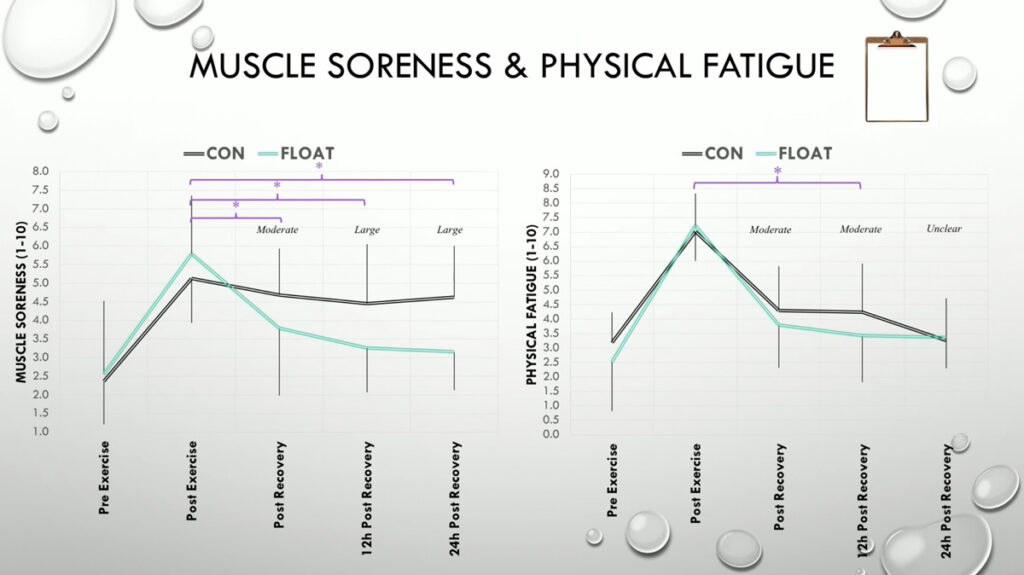As research on floating continues to mature and push into the mainstream, it has more and more evidence to back up its benefits. Many pro athletes are regularly jumping into tanks these days, and at the 2019 Float Conference, leading sports scientist Dr. Matt Driller presented emerging research on how float tanks can aid athletic recovery and performance. The results are quite exciting.

Dr. Driller hails from New Zealand and has studied elite athlete recovery for over a decade. His homeland prides itself on punching above its weight in sports, in spite of its tiny population. With limited top talent, New Zealand obsesses over getting every possible edge when it comes to preventing injuries from overtraining.
“Recovery fundamentals like sleep, nutrition and periodization come first,” Driller explains. “But at the highest levels, those extra ‘one percenters’ can mean the difference between gold and going home empty-handed.” This led Driller to begin scientifically investigating if float tanks could provide that marginal gain which could make or break a champion.
In 2016, Driller published his first study on how floating impacts athletes. He looked at 60 members of Australia’s Olympic team (who already floated regularly before the study began).
Measuring their mood, soreness and stress markers before and after one 60-minute float, the results were striking. Significant improvements appeared across 15 out of 16 mood factors. Athletes reported feeling less worn out, less tired, more relaxed, and less tense after getting their float on. Muscle soreness also decreased substantially.

Here’s where it gets really interesting – athletes who actually fell asleep during the float saw the biggest mood enhancements. This suggests that combining floating with napping may supercharge benefits.
Despite intriguing initial findings, Driller is the first to admit this study had limitations. The sample size was small and it examined only psychological effects, not physical performance metrics. Still, it remains heavily cited in the media on floating simply because so little other research exists.
To address these gaps, Driller’s team completed a more thorough trial on 20 elite team sport athletes.
Researchers brought athletes into the lab for an intense late-night workout mimicking the strain from competition. Afterwards, athletes either did a 60-minute float or relaxed in a recliner as a control recovery. Measures of soreness, sleep quality, strength, power and speed were tracked both immediately after and the next morning.
The findings demonstrate clear physical benefits from floating in the participants. Compared to just resting, float recovery resulted in:
- Higher quality sleep with less wakefulness.
- Up to 24 hours less muscle soreness.
- Increased pressure pain threshold the next day.
- Faster sprint times 12 hours later.
- More power output on vertical jumps the next morning.

As Driller summarizes, “Less pain means quicker readiness to train again. Better sleep equals better restoration. Maintaining speed and explosiveness is huge for back-to-back competitions.”
This compelling data reveals that floating may confer real performance advantages for elite athletes.
However, Driller emphasizes that research is still in its early stages. “We need more work to unpack why and how floating provides these benefits,” he says. Some questions he is exploring next include:
- What happens with regular floating twice weekly over many weeks? Do effects accumulate?
- How does floating right before and after competition impact performance and recovery?
- Can detailed sleep studies reveal changes to sleep stages and quality?
- How do effects compare to techniques like cold water immersion, compression, massage, and others?
Answers here will refine best practices on using float pods (alongside other modalities) for performance, especially in regards to recovery.
According to Driller, “It’s an exciting time to be a float researcher! Elite sports will continue pushing boundaries.” He looks forward to getting more controlled data to inform athletic and public use, rather than relying solely on studies with small sample sizes and anecdotal reports.
Curious to test out floating yourself?
“Give it a try – you might be surprised how profound silent floating can be, both mentally and physically,” Driller advises. Based on the results from these ongoing scientific explorations, float tanks may well provide that extra edge to elevate your own performance to the next level.
